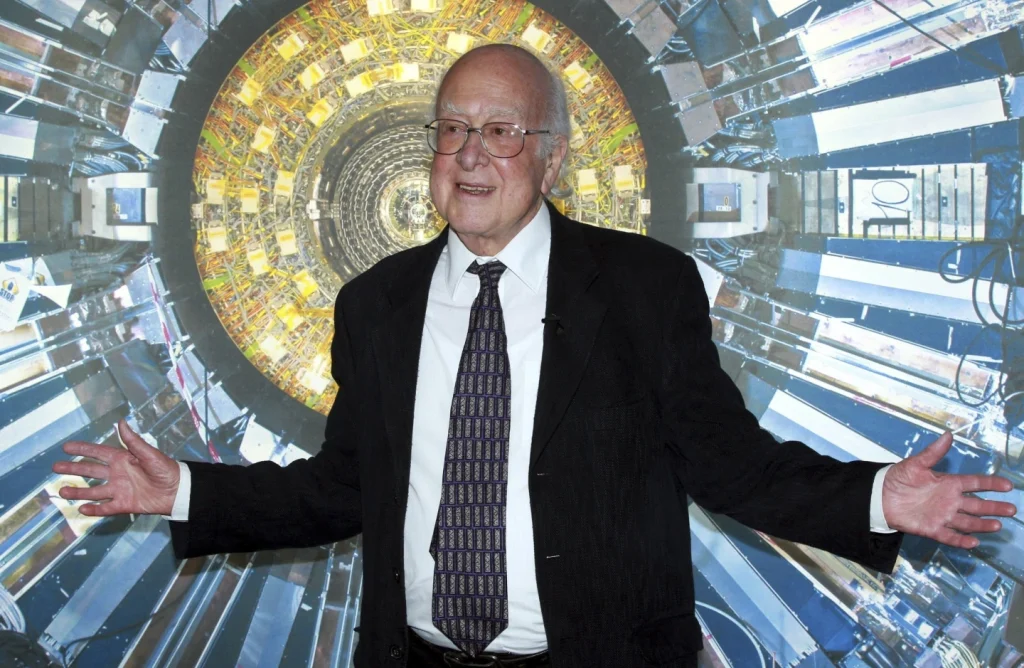The passing of Nobel prize-winning physicist Peter Higgs marks a significant moment in the realm of scientific achievement and understanding.
His groundbreaking work in proposing the existence of the elusive “God particle,” known as the Higgs boson, has left an indelible mark on the field of physics and our comprehension of the universe’s origins.
Peter Higgs, who recently succumbed to a brief illness at the age of 94, was a distinguished emeritus professor at the University of Edinburgh.
His seminal contribution in predicting the existence of the Higgs boson in 1964 revolutionized the way we perceive the fundamental building blocks of matter and the forces that govern them.
By postulating the necessity of a subatomic particle to confer mass upon other particles, Higgs laid the foundation for a deeper understanding of how the universe evolved following the cataclysmic event of the Big Bang.
The implications of Higgs’ work extend far beyond the confines of theoretical physics, offering profound insights into the enigmatic processes that underpin the formation of celestial bodies, including stars and planets.
Without the mechanism proposed by Higgs, the intricate fabric of the standard model of particle physics would remain incomplete, unable to account for the emergence of mass and the subsequent cohesion of particles into the tangible matter that constitutes our physical reality.
Despite the visionary nature of Higgs’ theory, it would take nearly five decades before the existence of the elusive Higgs boson could be experimentally verified.
In 2012, a momentous breakthrough occurred when scientists at CERN, utilizing the colossal Large Hadron Collider, confirmed the existence of the long-sought particle.
This monumental discovery not only validated Higgs’ theoretical framework but also represented a watershed moment in the annals of scientific inquiry, unraveling one of the universe’s most profound mysteries.
The significance of Higgs’ contributions to the field of physics was duly recognized when he was awarded the prestigious Nobel Prize in Physics in 2013, sharing the honor with Francois Englert of Belgium, who independently arrived at a similar theory.
Higgs’ intellectual prowess, coupled with his unwavering dedication to unraveling the mysteries of the cosmos, has left an indelible legacy that continues to inspire generations of scientists and scholars.
In paying tribute to Peter Higgs, Edinburgh University Vice Chancellor Peter Mathieson aptly captured the essence of his legacy, hailing him as a “remarkable individual” whose extraordinary scientific acumen and visionary insights have enriched our understanding of the intricate tapestry of the universe that surrounds us.
As we reflect on the profound impact of Higgs’ pioneering work, we are reminded of the enduring power of human intellect and imagination in unraveling the mysteries of the cosmos and expanding the frontiers of knowledge.
Peter Higgs, a renowned physicist whose groundbreaking work has left an indelible mark on the scientific community, continues to be a source of inspiration for countless individuals across the globe.
Born in Newcastle, northeast England, on May 29, 1929, Higgs embarked on a remarkable journey that would shape the landscape of theoretical physics for generations to come.
Higgs’ academic pursuits led him to King’s College, University of London, where he honed his intellect and passion for physics.
In 1954, he was awarded a doctorate, marking the beginning of a prolific career dedicated to unraveling the mysteries of the universe.
His tenure at the University of Edinburgh, culminating in his appointment as the Personal Chair of Theoretical Physics in 1980, solidified his reputation as a leading figure in the field.
The pinnacle of Higgs’ career came in 2013 at CERN in Geneva, where the confirmation of the boson, now famously known as the Higgs boson, was announced.
The emotional resonance of this moment was palpable, with Higgs himself moved to tears at the realization of his groundbreaking discovery.
Fabiola Gianotti, the CERN director-general, vividly described the atmosphere in the auditorium as a “unique moment” that transcended the confines of professional achievement.
Despite his monumental contributions to the field of particle physics, Higgs remained a humble and unassuming figure.

Colleagues and peers attested to his gentle demeanor and genuine interest in the perspectives of others. Joel Goldstein of the University of Bristol noted Higgs’ discomfort with the fame that accompanied his work, highlighting his modesty and humility in the face of widespread recognition.
Notably, Higgs’ aversion to the label “God particle” for his discovery underscored his commitment to scientific rigor and precision.
Gianotti recalled his distaste for such sensationalized terminology, emphasizing his preference for a more nuanced and accurate portrayal of his seminal contribution to physics.
In conclusion, Peter Higgs stands as a towering figure in the annals of scientific history, his legacy enduring as a beacon of inspiration for aspiring scientists and researchers worldwide.
His profound impact on the field of theoretical physics serves as a testament to the transformative power of curiosity, dedication, and intellectual courage.
As we reflect on his pioneering work and enduring influence, we are reminded of the boundless potential of human ingenuity to illuminate the mysteries of the universe and shape the course of scientific inquiry for generations to come.
